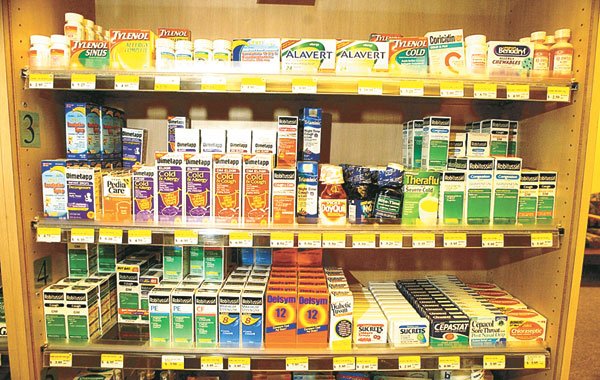As usual, mom was right: We should all be washing our hands
more.
As usual, mom was right: We should all be washing our hands more. In the face of cold and flu season, not only does mom say so, the Centers for Disease Control and Prevention says so, as does the American Hospital Association, the Infectious Diseases Society of America and Monica M-Johnson, director of clinical services and a registered nurse at Kaiser Permanente Gilroy Medical Offices.
“The best way to beat the bugs is through hand washing,” M-Johnson said. “If you can’t wash your hands, you can use antimicrobial hand gel up to eight times before needing to wash, unless your hands actually get soiled in something.”
Colds and the flu are mainly transmitted when droplets from a sick person’s cough or sneeze move through the air and land on another person’s nose or mouth, according to the CDC. But germs are often spread when the infected droplets land on surfaces such as doorknobs, phones or desks, and a person touches these surfaces and then touches his or her nose or mouth. Germs can live two hours or longer on such surfaces, which is why hand washing is so important.
People should wash their hands for 15 to 20 seconds, according to the CDC. That’s about as long as it takes to sing the “Happy Birthday” song twice.
CDC statistics show nearly 22 million school days are lost to the common cold alone every year. But the same statistics show that elementary school children who used proper hand-washing hygiene missed fewer days of school.
The Common Cold Centre at Cardiff University in the United Kingdom published a study last month that found that wrapping up and staying warm does help prevent colds, a common-sense idea that has never been scientifically proven before. The study had 90 volunteers spend 20 minutes with their bare feet in bowls of ice water. A control group dangled their bare feet in empty bowls.
Twenty-nine percent of participants dangling their feet in cold water developed cold symptoms within five days, compared to 9 percent of the control group. The study is part of an effort to prove cold noses and feet can activate latent infections.
Antibiotics will not get rid of a cold because colds are caused by viruses and not bacteria, according to the Infectious Diseases Society of America. However, if you’ve had a cold for two weeks or longer and aren’t getting better, see a doctor right away, M-Johnson said. Colds can sometimes turn into a more serious illness, such as pneumonia.
Vitamins and herbal remedies such as Airborne – a combination of herbs, amino acids, electrolytes and echinacea – help boost the immune systems and can aid recovery, M-Johnson said, but it’s important to make sure natural remedies won’t have adverse reactions to any medications people are already taking.
“The best way to fight a cold is rest,” M-Johnson said. “Our society is rush, rush, work, work, and that kind of stress keeps us sick longer. Chicken soup and warm teas help; the body needs a break.”
Over-the-counter cold and flu medicines don’t take away or kill whatever bug is making a person sick, but they are made to mask symptoms and make people feel better, M-Johnson said. But a medicine that works well for one person may not work well for another.
“It’s a very individualized thing,” she said. “Try different things and stick with whatever makes you feel better.”
Tylenol Cold, Airborne and DayQuil are M-Johnson’s weapons of choice. And she happens to be using them right now. She’s got a nasty cold, complete with a stuffy nose and scratchy throat.
Want to stay Healthy? Use Common Sense
The Infectious Diseases Society of America recommends three things to help people stay healthy during the cold and flu season:
– Wash your hands using soap and water, rubbing vigorously for at least 15 seconds. If using alcohol-based hand sanitizers, rub the sanitizer all over your hands, especially under your nails and between your fingers. Clean your hands especially before touching or eating food. Also clean them after using the bathroom, taking out the trash, changing a diaper, handling money or playing with a pet.
– Cover your nose and mouth when you sneeze or cough. This helps prevent the spread of infection. If using a tissue, throw them away immediately after use and then clean your hands. If you don’t have a tissue, cover your nose and mouth with the crook of your elbow.
“The worst thing is to re-use a tissue or a handkerchief,” said Monica M-Johnson, director of clinical services and a registered nurse at Kaiser Permanente Gilroy Medical Offices. “You can actually re-infect yourself. Use a tissue, then toss it.”
– Avoid close contact with other people if you are sick. Call in sick to work or stay home from school. If you seek medical treatment, use the masks and tissues found in many waiting rooms to help prevent the spread of germs.













